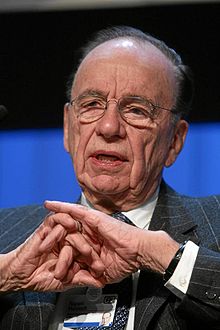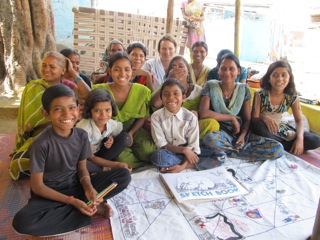The continuing scandal surrounding News International and the subsequent demise of the News of the World has barely been out of the media these past weeks.
As Rupert Murdoch’s empire wobbles beneath his well-heeled feet and Rebecca Brooks tries in vain to save her reputation, it appears that the British public are finally paying attention to the deplorable tactics that unscrupulous journalists have been employing for many years in order to produce the sensationalised garbage that passes as news in the UK. It is a sad reflection of society that it takes the intrusion into the lives of a murdered teenager or dead British soldiers to finally make people realise that the lengths some news rooms are willing to go to in order to publish front page news.

It astounds me that News of the World sales hit an all-time high in its final release last Sunday, a testament to the fact that though people may claim to be outraged by the actions of the rag, they were still keen to see what lay inside its doomed pages. There is only one reason why tabloid newspapers continue to exist. And that is because people read them. In fact, judging by the 2.7 million readership of the News of the World (which increased to over 4 million on its last Sunday), it seems rather a lot of people read them. In a world based on profit-making and financial gain, demand will happily be met by capitalist mega corporations who think nothing of destroying a reputation, a life or a whole community of people in the name of making a buck.
The bigger picture in all of this is the unyielding might of a company worth billions of dollars. The question is: How has one man and the empire he has created managed to exude so much power over senior police departments, royal aides and most worryingly, the government in the United Kingdom? One only has to look at the social calendar of David Cameron to see how much is invested by political parties in relationships with the likes of Brooks and Murdoch and, as the story continues to unfold, the lengths that politicians have gone to in order to stay mates with the big guns become more and more apparent.
Similar situations exist with pharmaceutical companies, the food industry, oil and gas companies and of course, the chemical multinationals like Dow and Monsanto.
How can we rely on our governments to make decisions in our best interests when they are curled up deep in the corners of the well-lined pockets of the people who really rule the world. How can we expect politicians to consider human rights and the needs and desires of common people when they depend on the investment of the multinational superpowers. The Indian government’s refusal to act appropriately in response to Bhopal is in part due to a desire to satiate American corporations who have their eyes on development in India, to keep them happy at the expense of tribal groups, poisoned communities and natural environment.
It is in the same way that the food industry is able to poison our food chain with antibiotics and steroids, that big pharma can carry out illegal drug trials on innocent people all over the world and that a blind eye has been turned to the gross invasion of privacy by tabloid press. Until pressure on governments to address these issues becomes stronger than the influence the people at the head of these superpowers exert little will change.

As demonstrated in Britain these past weeks, if the public feel strongly enough about a situation the truth will be uncovered and governments will act because they have to be seen to do something (though their actions can almost certainly be attributed to public image and not to a strong sense of moral duty). I doubt that the News Corporation scandal will put an end to the global stronghold of capitalism but it has been uplifting to see the true colours of one of the world’s most ruthless mega corporations laid bare for those who aren’t normally interested enough to care.
It gives me hope that the common decency of the public can perhaps put an end to the corrupt and disingenuous manner in which the people responsible for some of the biggest companies in the world act at the expense of those who, in their eyes, do not matter. I don’t suppose it’s much consolation for the family of Millie Dowler who are no doubt now reliving unimaginable horrors, nor for the people in Bhopal who continue to live in hope of clean-up and justice for their communities but maybe, just maybe, it is the beginning of a rising global consciousness around the bullying tactics of these powerful institutions and the criminal behaviour that they unabashedly display throughout the world. We should be outraged by every illegal action that negatively affects the wellbeing of human beings or the environment in a bid to make profit and we should make that outrage known. Through our outrage, and refusal to participate (by not buying the products produced by the companies we deplore e.g The News of the World) individuals – for despite the appearance of the faceless corporate machine it is individuals who are responsible – will be forced to be held accountable for their atrocious actions and we can move towards living in fairer, better world.



